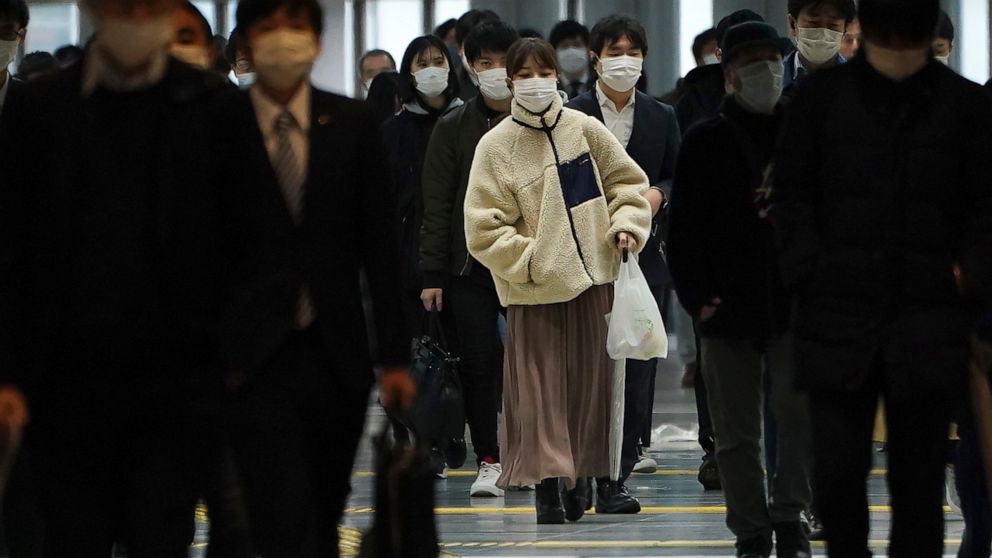
Sri Lanka has partially lifted its curfew and health authorities declared its coronavirus outbreak under control
4 min read
BANGKOK -- Sri Lanka's government has partially lifted a monthlong curfew and declared the coronavirus outbreak under control.
The Indian Ocean island nation had been under a 24-hour curfew since March 20. It was lifted during daytime hours in more than two thirds of the country Monday and will continue in the remaining districts including the capital, Colombo, until Wednesday.
The curfew will remain in effect from 8 p.m. until 5 a.m. until further notice. Thousands of curfew violators had been arrested as the Indian Ocean island nation imposed strict measures in an attempt to stop the virus from spreading.
The government’s decision comes as the country’s top health official Dr. Anil Jasinghe declared that COVID-19 is “under control” in Sri Lanka.
Despite the curfew being relaxed, schools, universities other education institutes will remain closed. Cinemas are closed, and pilgrimages and pleasure tours, carnivals, processions and meetings are banned. The government has also requested the suspension of all religious festivals to prevent large crowds from gathering.
State departments, corporations and banks will operate as usual. Buses, vans and rail carriages were ordered to operate at half their passenger capacity to ensure social distancing and were asked to disinfect all vehicles.
Director General of Health Services Dr. Anil Jasinghe told The Associated Press there was “a low level of transmission” of the disease in Sri Lanka, adding that “we never reached the (level of) community transmission.”
Sri Lanka has confirmed 271 cases and seven deaths as of Sunday, while 96 patients have recovered.
Sri Lanka army chief Lt. Gen. Shavendra Silva said 1,563 people are still quarantined at centers run by the military. So far, 4,143 people have left the quarantine centers.
Despite the curfew being partially lifted, the government emphasizes the necessity of remaining in homes without traveling outside except for work.
In other developments in the Asia-Pacific region:
— INDIA REOPENS FOR CERTAIN INDUSTRIES: India is allowing some manufacturing and agricultural activity to resume, but few of the employers that are eligible might do so, since they now have to transport and shelter workers to maintain social distancing and hygiene standards. Migrant workers also can travel within states to factories, farms and other work sites. India also recorded its biggest single-day spike in coronavirus cases, adding more than 1,500 as it tries to ramp up testing.
— NEW ZEALAND'S LOCKDOWN EXTENDED: Prime Minister Jacinda Ardern announced New Zealand's lockdown will last another week. For nearly four weeks, nonessential workers have been able to leave their homes only to buy groceries or get exercise. From next week, construction and manufacturing can resume, and some schools will reopen, although home-learning will be encouraged.
— JAPAN'S EXPORTS SINK: Japan’s exports sank 11.7% in March as the pandemic slammed auto shipments to the U.S. The Finance Ministry said exports to the U.S. fell 16.5%, while those to China declined 8.7%. Trade has slowed precipitously, and the International Monetary Fund forecasts the world economy is heading into its worst slowdown since the Great Depression in the 1930s.
— SOUTH KOREA'S INFECTIONS WANE: South Korea reported 13 cases as infections continue to wane in the hardest-hit city of Daegu. The new figures by South Korea’s Centers for Disease Control and Prevention brought national totals to 10,674 cases and 236 deaths. With its caseload slowing, South Korea has relaxed some of its social distancing guidelines, including lifting administrative orders that advised churches, gyms and bars to close. Schools remain shut while providing children remote learning.
— TULIPS RAZED: Tens of thousands of tulips in full bloom were razed at a Japanese park to prevent crowds from gathering. The flowers were the centerpiece of a popular annual festival in Sakura city, east of Tokyo, that was canceled this year. People still gathered to admire the flowers, however, making social distancing difficult. “We, of course, wish for many people to see our flowers, but this situation is now about human life. It was a heart-wrenching decision, but we had to do it,” Takahiro Kogo, a city official overseeing the park, said.
"some" - Google News
April 20, 2020 at 02:41PM
https://ift.tt/3ctJwKf
Asia Today: Sri Lanka, India start easing some restrictions - ABC News
"some" - Google News
https://ift.tt/37fuoxP
Shoes Man Tutorial
Pos News Update
Meme Update
Korean Entertainment News
Japan News Update
Bagikan Berita Ini















0 Response to "Asia Today: Sri Lanka, India start easing some restrictions - ABC News"
Post a Comment